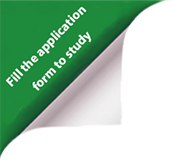The MSc/PhD course “Plant health in the wake of AI” (5 ECTs) in Pieve Tesino, Italy, 15-22 June 2024, is given with financial support of ELLS and the LTV faculty at SLU Alnarp and in conjunction with the course “Robotic weeding in sugar beet” 10 – 14 June 2024 at UHOH in Stuttgart (more info). We encourage taking both courses (even if it is not necessary to do so). However, note that the number of students are limited in both courses. There will be a shuttle transfer included between the sites.
The costs of the course covering accommodation in Pieve Tesino is €175 (for ELLS, UNITUS and SLU students) or €225 (for non-ELLS, UNITUS and SLU students). Students will also have to cover food expenses provided by a local restaurant which will be ca €150/student; welcome get-together and farewell dinner are provided for free.
Deadline to apply 2 April!
Grants for travel and accommodation: Note that SLU LTV faculty PhD students can apply for grants here (deadline 28 Feb) or SLU MSc students here (Note that similar MSc travel grants exist at the other ELLS universities).
The aim of the course is to bring together PhD and MSc students from different back-grounds (biology, agronomy, horticulture, agroecology etc.) working on plant health related areas and relate them to aspects of policy governing these fields. A special focus will be given to AI in relation to plant health. This implies machine and deep learning methods for disease and weed monitoring as well as broader aspects and a discussion on how AI will influence the research field of plant health. No advanced understanding of machine and deep learning methods is needed. To account for the expected diversity of student backgrounds and to make sure that they are on a com-parable scientific level in the management strategy discussions, some lectures in the beginning will be devoted to introducing the fundamental aspects of plant health. The lecturers will be asked to give a brief basic introduction to the subject area and then to move on and end with the latest results (which will also be discussed during the literature seminars).
Teachers:
Junfeng Gao, Lincoln University (pending)
Anna Maria Vettraino, University of Tuscia (pending)
Antoine Harfouche, University of Tuscia
Rimsha Ashraf, Swedish University of Agricultural Sciences
Wouter Maes, Ghent University (possibly remotely)
Marco Tesin, Azienda Agroecologica Marco Tasin
Erik Andreasson, Swedish University of Agricultural Sciences
Svante Resjö, Swedish University of Agricultural Sciences
Erik Alexandersson, Swedish University of Agricultural Sciences
The following topics will be dealt with during the course:
- Plant defense, resistance biology and breeding.
- Pests and pathogens. Ecology/population dynamics, life cycle etc. – some typical examples from each group.
- Crop loss assessment and presentation of different management methods, e.g. biological and chemical control, resistance breeding, molecular tools, disease prediction, etc.
- Development of management strategies based on the different methods that are at hand – examples from different cropping systems – agriculture, horticulture and forestry.
- How the threats from pathogens and pests can be expected to be affected by climate change. How different protection strategies are affected by and can be adapted to climate change.
- How emerging techniques based on Artificial Intelligence (AI) research can be used for crop health and disease monitoring, weeding and pesticide application, and how these techniques can be integrated into pest protection strategies to increase sustainability.
- How AI in general will influence the research area of plant health. Applications of AI through machine and deep learning emerging in plant health strategies will be presented and students will have to consider how AI will have a positive or negative impact on their case studies.
Preliminary schedule
10-14 June: Robotics in weeding course hosted by University of Hohenheim led by Prof Roland Gerhards and also part of ELLS (also open to students of Plant health in the wake of AI, more info)
Friday 14 June: Arrival in Stuttgart and demo of student results from Robotics in weeding, student presentations, introduction to case study, evening get-together. Stay-over at the local field station.
Saturday 15 June: Departure by bus from Stuttgart, Germany, or arrival in Trento if you are not in the course “Robotics in weeding”, and study visit under way to Pieve Tesino, Italy, stay-over in around Trento.
Sunday 16 June: Arrival Pieve Tesino. Introductory lectures (history, overview of pathogens and pests, start-up of case studies).
Monday 17 June: Plant protection lectures (molecular biology of plant-pathogen interactions, resistance breeding), first literature seminar in groups, hand in title of case study
Tuesday 18 June: Lectures (IPM, showcase Pieve Tesino 1: Forest protection), preparation of case study
Wednesday 19 June: Lectures (AI in plant health, Conventional pesticides and Biologicals), second literature seminar in groups
Thursday 20 June: Student discussion “where will AI take plant health?”, third literature seminar.
Friday 21 June: Student presentation of case studies, course evaluation, show case Pieve Tesino 2: Apple and grape production, end party with Swedish midsummer theme.
Saturday 22 June: morning departure with transfer to Trento or Stuttgart


